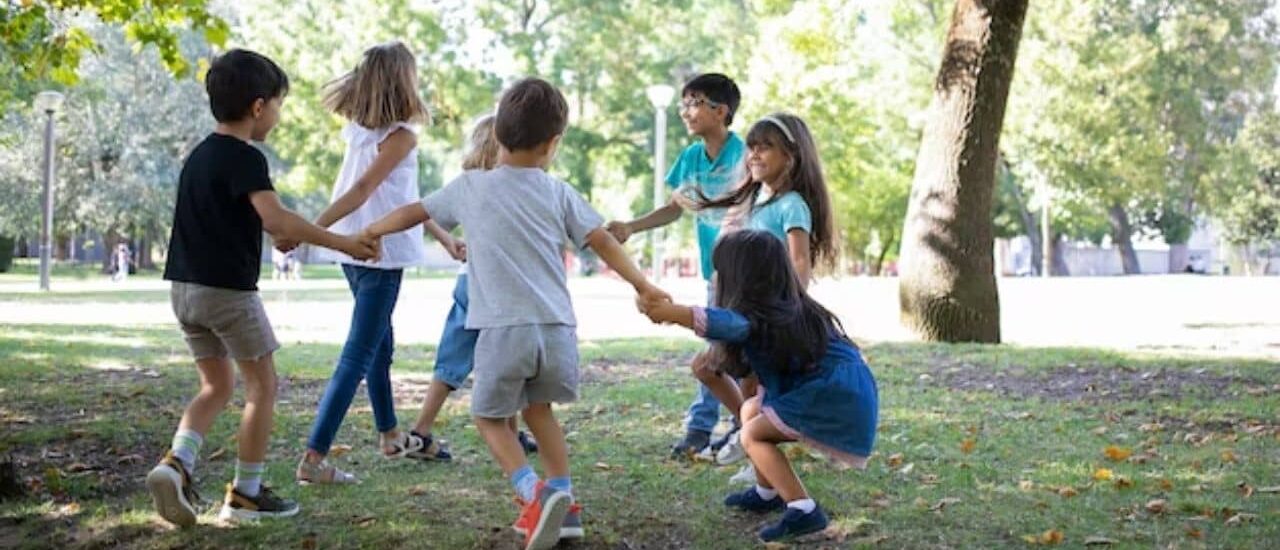Play is more than just a fun activity; it’s a vital component of a child’s development journey. From fostering creativity and social skills to enhancing cognitive abilities, playtime offers a treasure trove of benefits that go far beyond mere entertainment. In this comprehensive guide, we delve into the significance of play in child development, shedding light on its various forms and the profound impact it has on shaping young minds.
1. Understanding Play: More Than Child’s Play
Play is the universal language of childhood. It encompasses a range of activities that are spontaneous, enjoyable, and self-directed. Play provides children with a safe space to explore, experiment, and express themselves freely, nurturing their overall growth.
2. Types of Play and Their Role in Development
- Physical Play: Running, jumping, climbing—physical play helps children develop motor skills, coordination, and a healthy lifestyle.
- Imaginative Play: Also known as pretend play, it fuels creativity and imagination as children take on roles, create scenarios, and solve imaginary problems.
- Social Play: Interacting with peers through games and group activities enhances communication skills, teamwork, and the ability to understand others’ perspectives.
- Cognitive Play: Puzzles, building blocks, and educational games stimulate cognitive skills like problem-solving, critical thinking, and decision-making.
3. The Benefit of play in Child Development
Play is a universal language that transcends cultures, ages, and backgrounds. While it might seem like mere amusement, play holds the key to unlocking a world of cognitive, emotional, social, and physical benefits for children. In this article, we explore the diverse advantages of play in child development, highlighting its role in shaping well-rounded individuals.
Cognitive Growth: Nurturing Young Minds
Play provides a natural learning platform, engaging children’s brains in problem-solving, critical thinking, and decision-making. Through activities like puzzles and games, children develop skills that lay the foundation for academic success.
Emotional Resilience: The Playground for Feelings
Play helps children process their emotions. Whether through role-playing, art, or free play, kids learn to express, manage, and understand their feelings, fostering emotional intelligence.
Social Skills: Bridging Connections Through Play
Engaging in play with peers teaches cooperation, negotiation, sharing, and empathy. These social skills are vital for building healthy relationships and navigating the complexities of human interaction.
Physical Health: Play as a Pathway to Wellness
Physical play, such as running, jumping, and climbing, supports the development of motor skills, coordination, and muscle strength. It also contributes to overall health and an active lifestyle.
Creativity and Imagination: Fueling Innovation Through Play
Imaginative play sparks creativity, allowing children to explore endless possibilities. From creating elaborate scenarios to inventing stories, play nurtures innovation and original thinking.
Problem-Solving Skills: Playtime Puzzles and Challenges
Games, puzzles, and construction toys present challenges that encourage children to strategize, analyze situations, and develop problem-solving skills that prove invaluable in real-world situations.
Language Development: Words and Worlds in Play
Playtime provides a rich environment for language development. Children engage in conversations, storytelling, and make-believe scenarios, building vocabulary and communication skills.
Confidence Building: Playing and Achieving
Mastering new skills through play, whether it’s building a tower or winning a game, boosts children’s self-esteem and confidence. These positive experiences contribute to a strong self-concept.
4. How to create a play-friendly environment at home for child development
Creating a play-friendly environment at home is essential for fostering your child’s development. A thoughtfully designed space encourages exploration, creativity, and learning. Here are some practical tips to help you create a play-friendly environment that supports your child’s growth and development:
1. Choose the Right Space: Designate a specific area in your home for play. It could be a corner in the living room, a spare bedroom, or even a playroom if space allows. This helps establish a clear boundary between playtime and other activities.
2. Safety First: Ensure that the play area is safe for your child. Remove any potential hazards, secure heavy furniture to the wall to prevent tipping, and cover electrical outlets. Use non-toxic materials for any furnishings or toys.
3. Provide Adequate Storage: Invest in storage solutions like bins, shelves, and cubbies to keep toys organized. Teach your child to clean up after playtime, instilling a sense of responsibility.
4. Access to Age-Appropriate Toys: Select toys that align with your child’s age and developmental stage. Offer a variety of toys that stimulate different skills, such as building blocks for creativity or puzzles for problem-solving.
5. Create Zones: Designate different play zones within the space. A reading nook with comfortable cushions, an art corner with supplies, and an active play area can cater to various interests.
6. Incorporate Natural Light: If possible, position the play area near a window to allow natural light in. Natural light enhances mood and can positively influence your child’s focus and creativity.
7. Incorporate Colors and Decor: Choose cheerful and stimulating colors for the play area’s decor. Consider wall decals, posters, or artwork that reflect your child’s interests and encourage imagination.
8. Flexible Furnishings: Use child-sized furniture like tables, chairs, and shelves that your child can easily access and use. These items promote independence and make the space feel more child-friendly.
9. Interactive Displays: Create interactive displays, such as a chalkboard or whiteboard for drawing, pin-up boards for displaying artwork, or a magnetic board for arranging magnets.
10. Rotate Toys: To keep things fresh and engaging, periodically rotate toys in and out of storage. This prevents boredom and rekindles your child’s interest in toys they haven’t played with for a while.
11. Incorporate Textures: Include different textures in the play area, like soft rugs, plush cushions, and sensory toys, to engage your child’s tactile senses.
12. Allow for Creativity: Include materials for creative activities like drawing, painting, and crafting. Provide a variety of art supplies and encourage your child’s artistic expression.
13. Minimal Digital Distractions: While it’s okay to include technology for educational purposes, limit screen time and encourage more hands-on, imaginative play.
14. Display Books: Set up a small bookshelf filled with age-appropriate books to encourage reading and language development.
15. Parental Involvement: Join your child in play occasionally to bond, share experiences, and guide their activities. This can also help you understand their interests and tailor the environment accordingly.
5. Play-Based Learning in Educational Settings
Educators recognize the power of play in learning. Play-based approaches in early education foster creativity, curiosity, and problem-solving skills.
6. The Science of Play: Insights from Experts
Research supports the importance of play in brain development. Neuroscientists affirm that play activates regions of the brain linked to learning and higher-order thinking.
7. Bringing Play Back: Navigating the Digital Age
While technology has a role, balancing screen time with active, hands-on play is crucial. Outdoor activities, board games, and creative projects are essential for holistic development.
8. Conclusion
In a world of structured schedules and digital distractions, the value of play cannot be overstated. Play is the essence of childhood, nurturing cognitive, emotional, and social growth. As parents, caregivers, and educators, embracing and promoting play in various forms is not just a choice but a responsibility—a commitment to fostering well-rounded, capable, and confident individuals ready to take on the world.














Thanks for the insightful article. It was extremely informative and offered a lot of useful information. Should you be interested in the world of viral real estate SEO, make sure to visit https://www.elevenviral.com for additional insights.